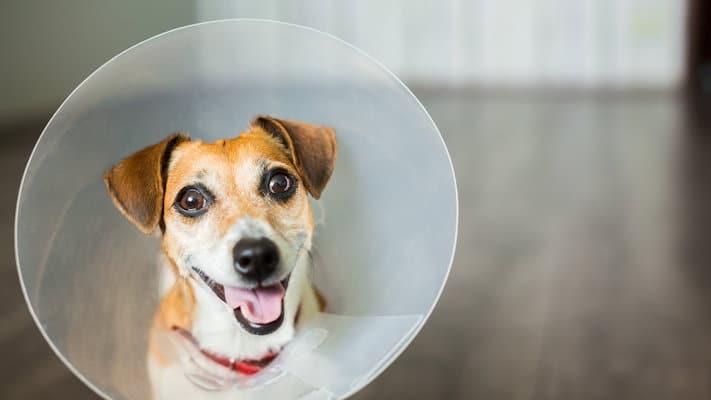Neutering your canine companions is a HUGE step that may leave some of us in constant anxiety. It’s a surgical procedure, after all. But don’t worry, it’s completely safe and will ultimately benefit your pooch.
If you’re a dog owner in the UK, it’s particularly essential to understand the full scope of this decision, given the country’s unique legal landscape and veterinary practices.
For my unaware readers and new dog parents, neutering isn’t just about preventing unwanted litters. It also has numerous health and behavioural benefits for your dog.
However, it’s also a decision that needs to be considered carefully, with your dog’s specific needs in mind. Putting an unsuitable dog through a non-critical procedure is not a good idea.
So, let me tell you everything you should know about neutering a male dog – from the best age for the procedure to the post-op recovery and aftercare.
What is the best age to neuter a male dog?
Generally speaking, you should neuter a male dog between six and nine months of age. The decision, however, may depend on factors such as physical development and overall health of your dog. As such, veterinarians suggest neutering larger breeds around 12 – 18 months to prevent joint issues.
Additionally, the “ideal” age may also depend on the breed for some of the species. Some breeds are predisposed to certain health conditions that neutering can alleviate or exacerbate.
For example, large breeds like German Shepherds are often recommended to be neutered later to allow for full growth and prevent orthopaedic issues.
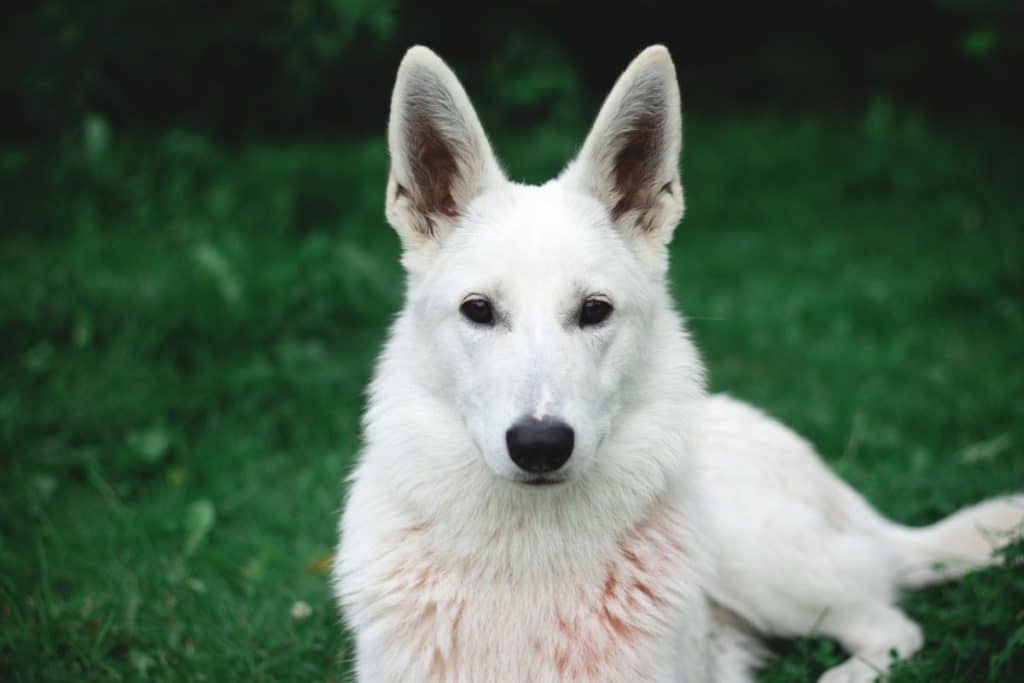
As for your dog’s physical condition, you should always consider its medical history before neutering. Dogs with existing medical conditions must be stabilized before the surgery can be considered safe.
Some health issues, like cryptorchidism, may even necessitate earlier neutering to prevent complications later on.
All of the “ideal” conditions aside, don’t worry if you’re adopting an adult dog or an older puppy. It’s never too late to make a responsible choice! You should get in touch with your vet and ask for advice on how to proceed further.
What happens to your dog during the neutering procedure?
Now that you know when to make this decision, let’s dive into what happens during the procedure. The entire neutering procedure can be divided into 4 basic steps: pre-op, surgery, post-op and recovery.
Let me tell you how everything works and what’s required of you during each phase.
1. Preliminary Tests and Pre-Op Preparations
It all starts with a simple consultation with your veterinarian. They do a thorough check-up to assess your pooch’s overall health.
Based on the preliminary results, your vet may recommend blood tests to ensure your dog is fit for anaesthesia.
For pre-op preparations, your veterinarian will generally ask you to withhold food for at least 8 to 12 hours before surgery to prevent vomiting. Fasting is compulsory and must not be taken lightly.
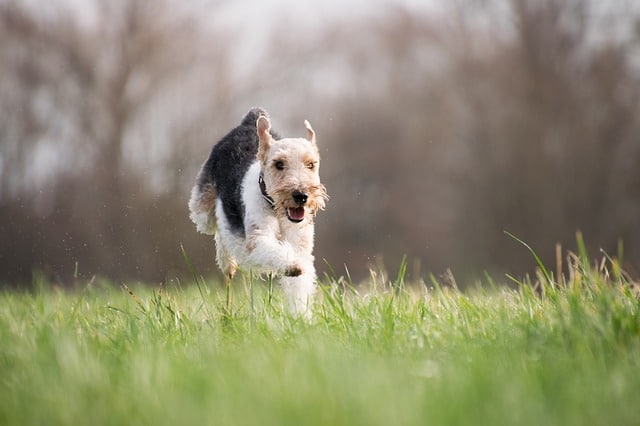
If your dog is VERY active, the doc may give them a mild sedative before surgery to help them relax. Your vet will discuss this option with you, so don’t worry about getting caught off-guard.
2. Surgery Overview
- Anaesthesia: Your canine friend will be given a dose of general anaesthesia to ensure they don’t feel pain during the operation and sleep pain-free instead.
- Incision and Removal: Once your dog is asleep, the vet will make a small incision in the scrotum to remove the testicles.
- Stitching It Up: After the testicles are removed, the vet will stitch up the incisions. Some vets even use dissolvable stitches that don’t require removal.
3. Post-Op Care and Recovery
Your dog will be closely monitored for a few hours when they wake up. Because it’s common for dogs to feel groggy or disoriented initially.
Additionally, your dog will likely receive pain medication to make the recovery as comfortable as possible. And an Elizabethan collar to deter them from licking the incision site.
Now, recovery is a process that requires some patience and enthusiasm on your part. Let’s discuss that next.
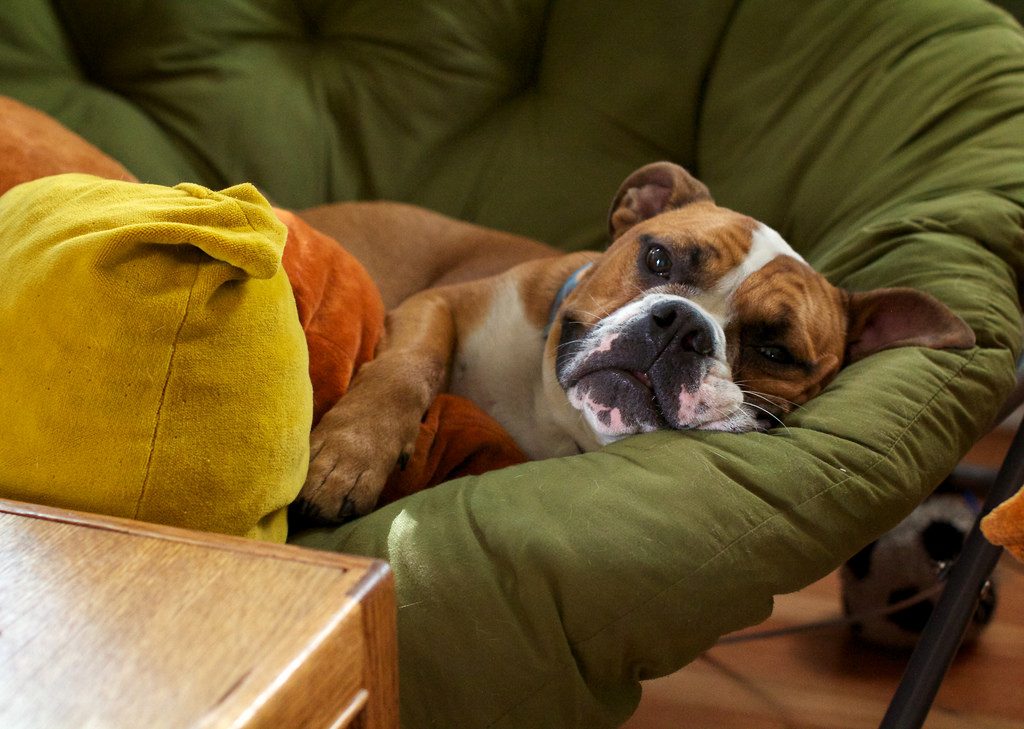
How long does it take for a dog to recover from neutering?
Ideally, it should take your male dog about two weeks to completely recover from their neutering surgery. In fact, they’ll show great progress within the first week itself.
Let me break it down:
- First 24-48 Hours: Your dog might be slightly out of sorts. We usually recommend restricted movement and quiet time to let them rest during this time.
- One Week: You’ll likely have a follow-up appointment to check the incision site and remove stitches if they are non-dissolvable.
- Two Weeks: By now, your dog should be back to their normal, happy self!
How to care for your neutered dog and help them recover?
You’ve just returned your doggo from the vet after his neutering surgery. What’s next? Well, the ball is now in your court. Your dog will need your love and care to sail through the recovery process.
1. Diet Adjustments
Trust me, I have been in your shoes. I know the urge to spoil your dog with treats, especially when those puppy eyes look a little more sorrowful post-surgery.
Resist that urge! Too much rich food can upset your dog’s stomach, even more so after anaesthesia.
Instead, you should serve them a bland diet of cooked chicken and rice for the first few days. You should always gradually reintroduce their regular meals.
2. Exercise Limitations
Keep your dog on a leash for atleast 2 weeks during the recovery. They’ll want to jump and sprint; you must not entertain them.
That said, going on short, controlled walks is completely okay. But avoid places like dog parks where your pooch may be tempted to overexert themselves.
3. Monitoring for Complications
Keep tabs on the incision site daily. Any redness, swelling, or discharge should warrant immediate attention from your vet.
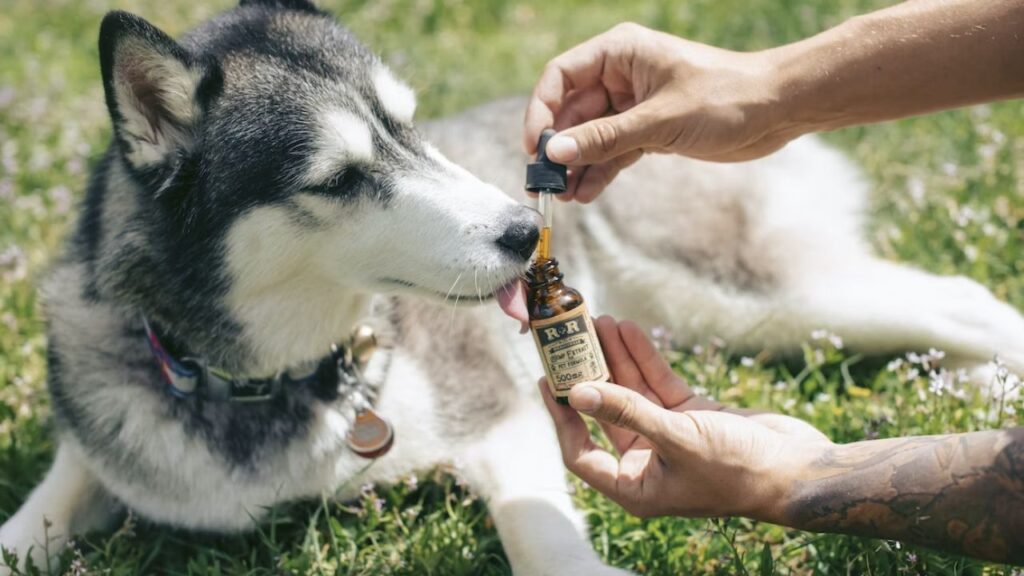
How much does it cost to neuter a male dog in the UK?
Neutering is generally an affordable procedure. However, the costs can vary between different parts of the UK or the rest of the world.
Generally, you can expect to pay between £100 and £200 to neuter your male dog in the UK. Additionally, the vet’s reputation and location will significantly affect your bill. A high-end clinic in London will undoubtedly charge more than a rural vet.
Then there’s your dog’s size and breed. Larger dogs might require a more complicated procedure and thus may cost more. And, of course, if there are any complications or your dog needs special medications, that’ll also affect the final tally.
There are ways to make this more affordable, so don’t let the price tag deter you. Many local charities and organizations offer subsidies or even free neutering programs for low-income families.
However, I’ll say one thing. DO NOT CUT CORNERS by choosing a cheaper but less qualified vet.
Frequently Asked Questions (FAQs)
1. Do male dogs change after being neutered?
Generally speaking, neutering may lead to a noticeable reduction in aggressive and territorial behaviours in male dogs. You might notice that your pooch becomes less interested in marking their territory or seeking out female dogs.
However, the essence of your dog’s personality will remain the same. So, if your fur buddy is playful and affectionate, don’t worry—neutering won’t dampen their spirit!
2. Is 2 years old too late to neuter a male dog?
Technically, you can still neuter a dog who’s 2 years old or even older. The procedure may come with additional health assessments and possibly a slightly longer recovery time, but the benefits, like reduced risk of certain cancers and unwanted behaviours, still apply.
3. Do neutered male dogs live longer?
Substantial evidence suggests that neutered dogs tend to live longer, healthier lives than unneutered dogs. The surgery has been shown to reduce the risk of certain health issues like testicular cancer and prostate problems among dogs.
However, individual lifespans can vary based on numerous factors like breed, overall health, and care.
